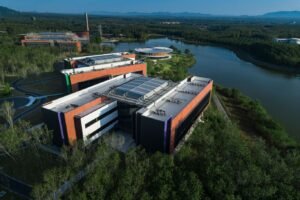Applications are currently being accepted for the 2026 award year of the Human Frontier Science Program’s (HFSP) Long-Term Fellowships (LTF). These prestigious postdoctoral grants offer life scientists in their early careers a rare chance to conduct innovative, multidisciplinary research overseas. The initiative, which is run by the International Human Frontier Science Initiative Organization (HFSPO), encourages scientists who are keen to investigate novel issues in the fundamental life sciences, especially those that contradict accepted scientific theories and practices.
Researchers with a doctorate in the life sciences who wish to broaden their knowledge by working in a different research setting and nation are the target audience for the HFSP Long-Term Fellowship. The fellowship fosters worldwide cooperation across disciplinary boundaries and supports basic, curiosity-driven research. Scientists who want to change the course of their research and work on projects that are very different from their previous doctoral or postdoctoral work are especially well-suited for it.
The LTF provides considerable financial support for three years, allowing fellows to develop international networks and engage in high-impact research. The Cross-Disciplinary Fellowship (CDF), which is designed for applicants with academic credentials outside of the biological sciences who are making the switch to life science research, should be distinguished from the LTF. The HFSP Long-Term Fellowship is an incredible chance to advance scientific knowledge and take part in groundbreaking global research.
Host Country: Worldwide
Offered by: Human Frontier Science Program (HFSP)
Opportunity Type: Fellowship
Subject: Life Sciences
Eligibility Country: International Students
Financial Coverage: Fully Funded
Eligibility Criteria:
Academic Background
- Applicants must hold a PhD or equivalent degree in the life sciences.
- The degree must be awarded between 25 September 2022 and 25 September 2025.
- Exceptions may be granted in cases of career interruptions, such as parental leave or illness.
Research Project
- The proposed project must focus on fundamental research in the life sciences.
- It should represent a significant departure from the applicant’s previous PhD or postdoctoral work.
- Projects with a focus on applied research, such as drug development, clinical trials, or diagnostic methods, are not eligible.
Host Institution
- The fellowship must be carried out at a host institution located in a different country than the applicant’s country of citizenship.
- Applicants must not have lived, studied, or worked in the host country for more than 12 months prior to the start of the fellowship.
- The proposed host supervisor must not have previously collaborated with the applicant as a co-author, supervisor, or project partner.
Nationality
- Applicants who are citizens of HFSP member countries can apply to work in any country other than their own.
- Applicants from non-member countries are eligible only if they apply to work in an HFSP member country.
Publication Requirement
- Applicants must have at least one lead-author research article that is either published, in press, or formally accepted in a peer-reviewed journal by the full proposal deadline.
Benefits:
Living Allowance
- The amount varies depending on the host country.
- For example, in the United States, the allowance is approximately $59,460 per year.
Child Allowance
- An additional 10% of the living allowance per child is provided.
- This allowance is granted only during the first year of the fellowship.
Research and Travel Allowance
- The amount is country-dependent and intended to support research-related travel and expenses.
- In the United States, the allowance is typically around $7,200 per year.
Relocation Allowance
- Fellows may receive up to $4,000 to assist with relocation costs.
- This allowance is available for the fellow as well as their spouse/partner and children, depending on the host region.
Deadline: 25 September 2025







